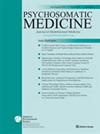Anger Expression Styles, Cynical Hostility, and the Risk for the Development of Type 2 Diabetes or Diabetes-Related Heart Complications: Secondary Analysis of the Health and Retirement Study.
IF 2.4
3区 医学
Q2 PSYCHIATRY
引用次数: 0
Abstract
OBJECTIVE Limited research has examined associations between trait anger and hostility and incident type 2 diabetes (T2D) and diabetes-related heart complications. However, anger expression styles (i.e., anger-in, anger-out) have not been examined. The present study used secondary data to examine the associations between anger expression styles, cynical hostility, and the risk of developing T2D (objective 1) or diabetes-related heart complications (objective 2). METHODS Self-report data came from participants aged 50-75 in the Health and Retirement Study. Anger-in (anger that is suppressed and directed toward oneself), anger-out (anger directed towards other people or the environment), and cynical hostility were measured at baseline (i.e., 2006 or 2008). Follow-up data (i.e., diabetes status or diabetes-related heart complications status) were collected every two years thereafter until 2020. The objective 1 sample included 7,898 participants without T2D at baseline, whereas the objective 2 sample included 1,340 participants with T2D but without heart complications at baseline. RESULTS Only anger-in was significantly associated with incident T2D after controlling for sociodemographic characteristics, HR = 1.08, 95% CI [1.01, 1.16], but the association did not hold after further adjustment for depressive symptoms. Only anger-out was significantly associated with incident diabetes-related heart complications after adjusting for sociodemographic characteristics, health-related covariates, and depressive symptoms, HR = 1.21, 95% CI [1.02, 1.39]. CONCLUSIONS Anger expression styles were differentially related to diabetes outcomes. These findings demonstrate the value of expanding the operationalization of anger beyond trait anger in this literature and encourage further investigation of anger expression styles.愤怒表达方式、玩世不恭的敌意与罹患 2 型糖尿病或糖尿病相关心脏并发症的风险:健康与退休研究的二次分析》。
目的:对特质愤怒和敌意与 2 型糖尿病(T2D)和糖尿病相关心脏并发症之间关系的研究有限。然而,尚未对愤怒的表达方式(即 "怒入 "和 "怒出")进行研究。本研究利用二手数据研究了愤怒表达方式、愤世嫉俗的敌意与罹患 T2D(目标 1)或糖尿病相关心脏并发症(目标 2)风险之间的关联。在基线期(即 2006 年或 2008 年)测量了 "怒入"(压抑并指向自己的愤怒)、"怒出"(指向他人或环境的愤怒)和愤世嫉俗的敌意。此后每两年收集一次随访数据(即糖尿病状况或糖尿病相关心脏并发症状况),直至 2020 年。结果在控制了社会人口学特征后,只有 "愤怒-输入"(HR = 1.08,95% CI [1.01,1.16])与T2D的发生显著相关,但在进一步调整了抑郁症状后,这种关联并不成立。在对社会人口学特征、健康相关协变量和抑郁症状进行调整后,只有 "愤怒-出 "与糖尿病相关心脏并发症的发生明显相关,HR = 1.21,95% CI [1.02,1.39]。这些研究结果表明,除了特质愤怒之外,这些文献还对愤怒的操作方式进行了扩展,并鼓励进一步研究愤怒的表达方式。
本文章由计算机程序翻译,如有差异,请以英文原文为准。
求助全文
约1分钟内获得全文
求助全文
来源期刊

Psychosomatic Medicine
医学-精神病学
CiteScore
5.10
自引率
0.00%
发文量
258
审稿时长
4-8 weeks
期刊介绍:
Psychosomatic Medicine is the official peer-reviewed journal of the American Psychosomatic Society. The journal publishes experimental, clinical, and epidemiological studies on the role of psychological and social factors in the biological and behavioral processes relevant to health and disease. Psychosomatic Medicine is an interdisciplinary peer-reviewed journal devoted to high-quality science on biobehavioral mechanisms, brain-behavior interactions relevant to physical and mental disorders, as well as interventions in clinical and public health settings.
Psychosomatic Medicine was founded in 1939 and publishes interdisciplinary research articles relevant to medicine, psychiatry, psychology, and other health-related disciplines. The print journal is published nine times a year; most articles are published online ahead of print. Supplementary issues may contain reports of conferences at which original research was presented in areas relevant to the psychosomatic and behavioral medicine.
 求助内容:
求助内容: 应助结果提醒方式:
应助结果提醒方式:


